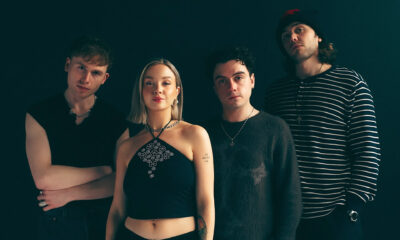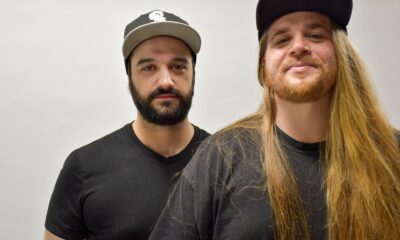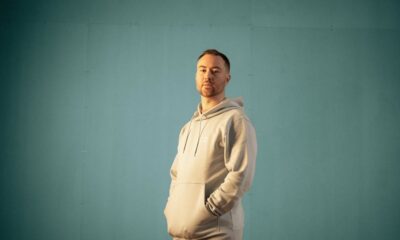Dance/Electronic
Former Pitchshifter Guitarist Jim Davies on ‘Headwars,’ Career Changes and New Chapters
Former Pitchshifter guitarist Jim Davies talks to V13 about his past, why he changed career and his return album ‘Headwars’. Read all about it here.
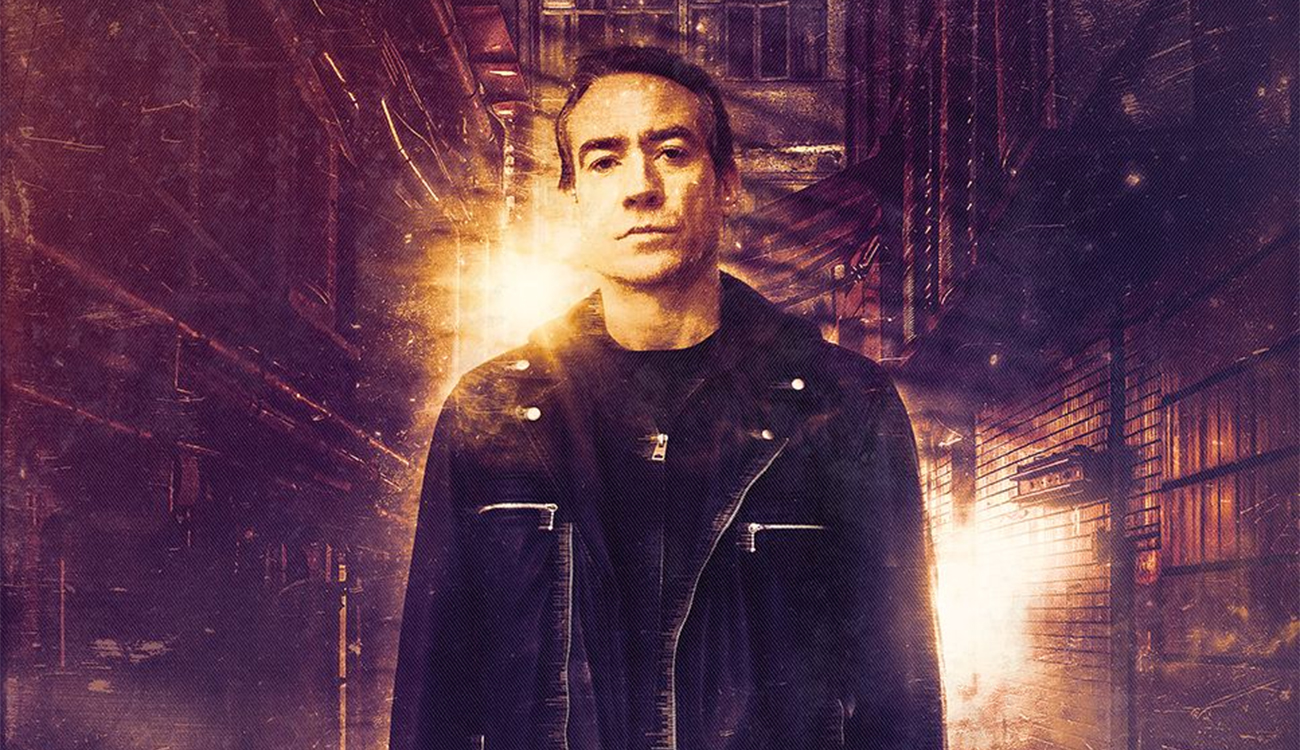
From genre-smashers Pitchshifter to playing guitar on some of The Prodigy‘s biggest hits to UK rockers Victory Pill, Jim Davies has a musical CV second to none. After fifteen years though, Davies needed a change and his career went in a completely new direction into that of the world of TV and Film.
Roll the clock forward to a couple of years ago and Davies once again got that itch to record his own work. The end result, Headwars, dropped earlier this month. The album, which sees Davies work with an impressive cast including former bandmates Mark Clayden and Jason Bould, as well as his own wife, is as varied as his career. Naturally, V13 had a chat with Jim about the reasons behind his career change, the new album, and the future.
So Jim, what’s been going on? The new album is about to come out, how long has it been in the pipeline?
Jim Davies: “I suppose the story is that I got to a point about ten or fifteen years ago where I was still doing band stuff and I was getting to that point where I was starting to think a little bit ahead more. I didn’t want to still end up doing bands in my late forties and doing all these dodgy clubs. I just knew I wouldn’t be into that.
I started to get into writing music for TV and stuff and it seemed like a good move. I’d been touring since I was twenty-one and, doing the TV stuff, I didn’t think I’d miss playing live or playing in a band. What I would have missed is writing music which is how I found the whole TV/Film thing. It gave me the chance to still be creative and write music and it does well and I didn’t have to tour. I threw myself into it for years and years. I’ve written thousands of bits of music and, over that time, I got a lot better.
All the time I was in bands, I never took any notice of what the producer was doing or even care. All I wanted to do was the guitar bits then go out and play. For me, it was a really big learning curve as you have to do it all. Write it, mix it, produce it. I taught myself all of that then, over the past couple of years, I wrote so many tracks that I felt like I was hitting a bit of a purple patch and I thought to myself that I hadn’t done something on my own where I’d had complete control because I didn’t think I could do it. I relied on other people. I started to think that some of the stuff I was doing for the TV stuff was good enough to release as a band thing.
A couple of years ago I started to think about doing an album of my own stuff just me. I didn’t need to do a band. I wouldn’t have to tour it. I could just put it out there. It was really nice to be able to sit down and think about writing stuff for my own album rather than a brief which is what I normally do for the TV. I just wanted to document myself where I am at the moment musically and I feel like what I’m doing now is stronger than a lot of the stuff I’ve done in the past. I also think it would have bugged me if I didn’t do this album.”
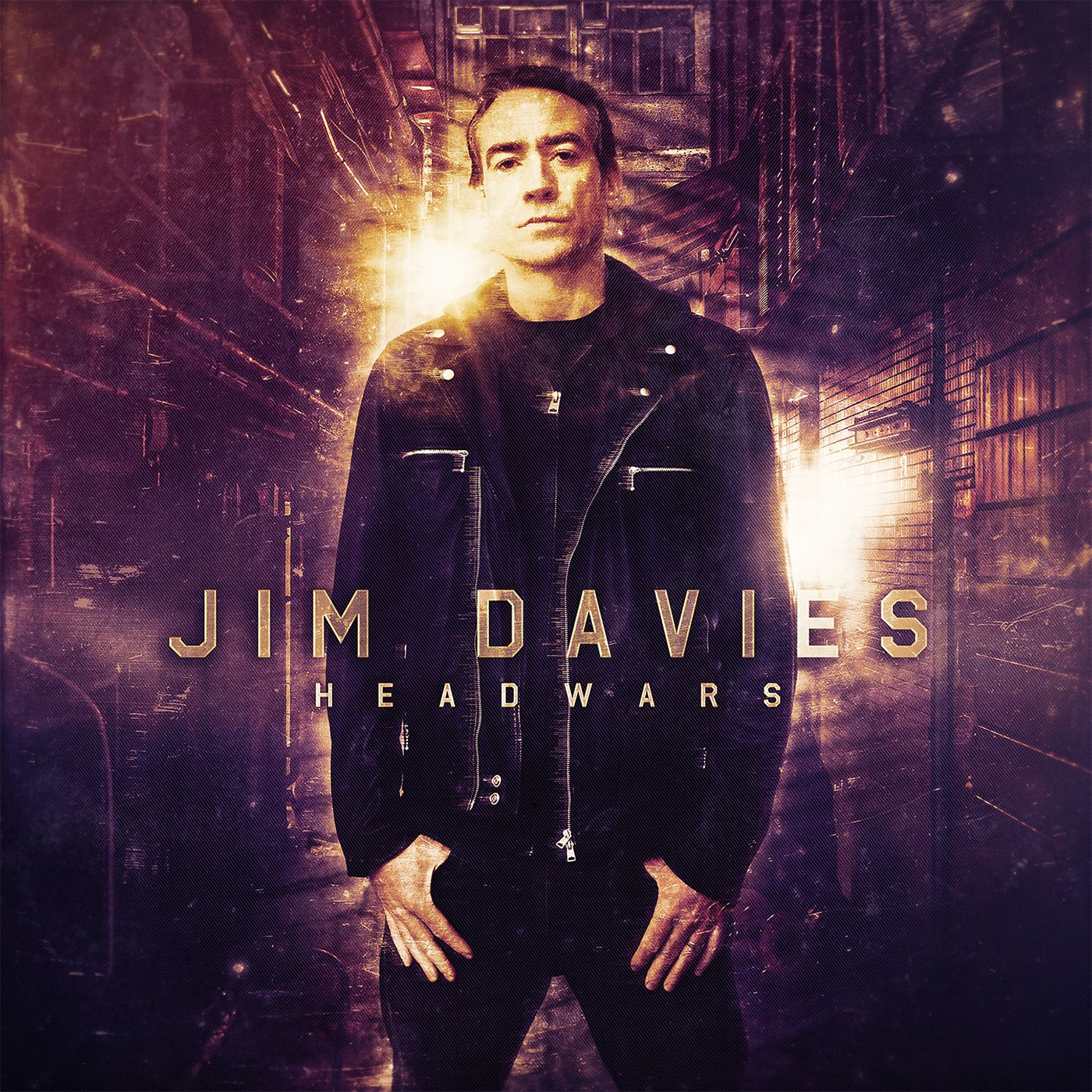
Artwork for ‘Headwars’ from Jim Davies
I was going to ask what prompted it?
“I think it was the fact that I had so much music out there in TV world that no-one really hears. The kind of stuff I do is quite dark and moody soundtrack stuff. I was always in a similar musical world. I have such a back catalogue of tracks that I could allow myself some leeway to do what I wanted to do. I started doing a few tracks and it came together really quickly. I played it to friends and family and they told me to just do it. I had a really good company that was going to help put it out and, from day one, I just wanted to treat it as a really fun project.”
The album title Headwars, is it a personal album? I believe the title refers to regrets you have?
“I couldn’t help but slip into that. When you write lyrics, for me at least, they’ve got to mean something. In the past, it’s not really been my thing to write the lyrics. All the bands I’ve been in I’ve had nothing to do with that. I always knew that, if I was going to do an album then the lyrics had to mean something to me. I suppose I developed a theme for it as well. A few years ago, I wasn’t having a great time and I think it’s one of the things, as a bloke at least, where you start looking back at your life.
I know I’m just an absolute nightmare for overthinking things and I got myself into a right state about things I thought I should have done better, bridges I’ve burned. It really started to take over and I got into a bit of a pickle. It was good though because some of the tracks on the album are about it but not in a negative way. There is a track on their called ‘Caged’ which is about when I went to see this life coach and I was telling him about what I’d been doing but how I still felt really weird, I don’t feel like I was going anywhere. We just ended up having a really good chat and he was saying things to me like stop living in the past and some of the things he said ended up being lyrics on the album. I’m my own worst enemy and I wind myself up terrible. Some of the album is about that and some of it is tongue-in-cheek. There are some of the tracks that are a bit of a dig at myself and telling me that I should cut myself some slack occasionally.”
On that note, what did you get out of writing this album?
“This really sounds cliched but I’m really proud of the album. In the past, I’ve listened to stuff and felt it was alright but this album really defines what I can do now. I was watching a documentary about Tears For Fears the other day and he was talking about how he wrote ‘Shout’ and how he went to see a therapist. He was telling him how he bottled things up and the guy said to him that instead of bottling it up he should just shout and let it all out and that’s how he got that song. A lot of it is quite dark and I think it works the same for me. I feel like I’ve got it all out on the record. Some of the tracks are quite deep and some of the tracks are me moving on and not keep battering yourself over things you can’t change. I suppose it’s a bit of closure.”
Do you see this as a new chapter then?
“Yeah. I haven’t really done anything in years and I had a fire lit under me to do this album. When I decided I was going to do it I really went for it and that’s probably why it came together so quickly. I was really wary of how it was going to go down and getting really bad reviews or people not caring. It’s definitely given me a new lease of life.”
Going back, what took you out of the music industry in the first place?
“I’d been doing it for so long. With Pitchshifter, the band plateaued a little bit. We’d done the P.S.I. album which I thought was really strong. After that we did a couple of things then it just stopped. At that time there were a few other things going on that I jumped over to. I did that for a bit then I did my own band Victory Pill and I enjoyed that but it was self-financed, there was no record label and, after a while, it just became really hard work and demoralizing to gigs with no-one there.
When I stopped playing in bands pretty much straight away it came back and bit me on the arse a bit. I was thinking about all these people I just hadn’t spoken to for years like Jason Bould who I was in bands with for years. I started thinking I’d really pissed him. I dropped him a message and he got back in touch immediately. With things like that you build up this image in your head and all it does is take a text to say hi.”
Any regrets about things from the past?
“I do regret the way I left Pitchshifter and I have spoken to them all about it since. It didn’t feel like a clean break, I just left. After I went they did a last tour kind of thing which I wasn’t involved in. It never felt like a clean break and I massively regret that and we’ve spoken about it since. Those guys were a very important part of my career. I’ve got to look at that as a massive part of what I am now and we’re all mates again.”
Moving forward then, has what’s going on affected what you’re going to do in terms of promoting the album?
“I don’t know if it such a bad time for me really. The album is a digital-only release so it’s not like people can’t get the CD because HMV is shut. I wasn’t planning on gigging it and the album is on Spotify if people want to listen to it. Hopefully, it won’t affect it too much?”
When life returns to normal then what are your plans going forward?
“I’ll be carrying on with the TV stuff for sure and I’m definitely going to carry on writing and I like the idea of doing an EP or something like that.”
Just to finish then, when you jumped back into this, were you surprised how much things had changed?
“Well, when I was speaking to the press they were saying people don’t really put out albums anymore so that was a surprise. Also, because of the TV thing, I didn’t really need an online presence but now I’m putting this out there I started to look into it.
I only recently started a Facebook page. Sales are completely irrelevant because people will stream it and that’s a big difference from how it used to be. You’d put out albums in the past and you’re relying on physical sales because you have to pay the mortgage and the bills. It’s not like that for this. I’m relaxed about it. If I didn’t think it was good enough to put out there I would have done it differently but I think it’s good and hopefully, other people will too!”
-

 Music6 days ago
Music6 days agoTake That (w/ Olly Murs) Kick Off Four-Night Leeds Stint with Hit-Laden Spectacular [Photos]
-

 Alternative/Rock17 hours ago
Alternative/Rock17 hours agoThe V13 Fix #011 w/ Microwave, Full Of Hell, Cold Years and more
-

 Alternative/Rock1 week ago
Alternative/Rock1 week agoThe V13 Fix #010 w/ High on Fire, NOFX, My Dying Bride and more
-

 Features6 days ago
Features6 days agoTour Diary: Gen & The Degenerates Party Their Way Across America
-

 Culture1 week ago
Culture1 week agoDan Carter & George Miller Chat Foodinati Live, Heavy Metal Charities and Pre-Gig Meals
-

 Music1 week ago
Music1 week agoReclusive Producer Stumbleine Premieres Beat-Driven New Single “Cinderhaze”
-

 Indie17 hours ago
Indie17 hours agoDeadset Premiere Music Video for Addiction-Inspired “Heavy Eyes” Single
-

 Alternative/Rock2 weeks ago
Alternative/Rock2 weeks agoThree Lefts and a Right Premiere Their Guitar-Driven Single “Lovulator”



